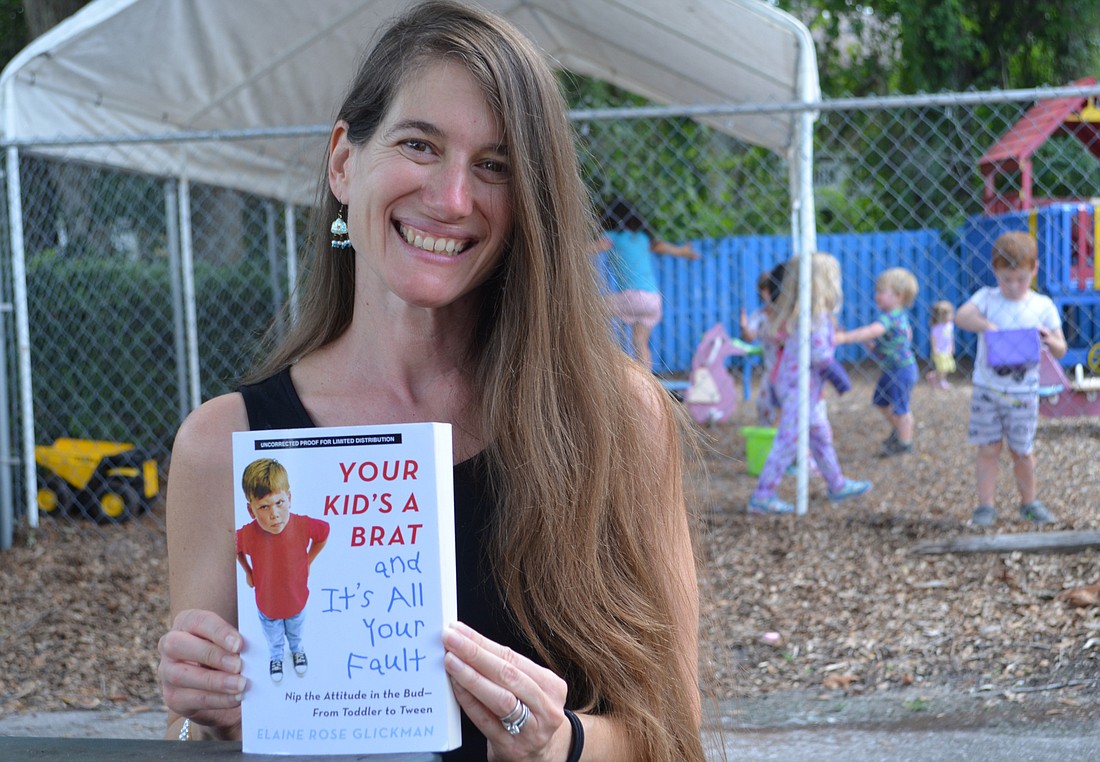- November 23, 2024
-
-
Loading

Loading

We’ve all witnessed the child in the checkout line whose blood-curdling screams are demanding some incoherent thing.
The parent tries to soothe the child as quickly as possible, all while avoiding glares from strangers judging them.
“It really is an act of courage to step up and love your child enough to be the boss,” said Rabbi Elaine Rose Glickman.
Author and mother of three, Glickman recently published the book “Your Kid’s a Brat and it’s All Your Fault” to help parents recognize their own behaviors that are contributing to their children’s own bratty attitudes. “Your Kid’s a Brat and it’s All Your Fault” is also meant for parents to laugh at themselves and not be discouraged.
“It’s like what we see on Facebook with all the families are happy, and the kids are always smiling,” Glickman said. “It can really take a lot of guts to say ‘No’ to your child.”
Glickman, 45, previously authored six books with topics based in Judaism, including “Sacred Parenting: Jewish Wisdom for Your Family’s Early Years” which was a National Jewish Book Award finalist in 2009.
She’s been a contributor to a parenting column with Mommy magazine on and off for five years. This is her first book exclusively about parenting in a secular context. The inspiration for the book came after completing the “The Messiah and the Jews,” a comprehensive look of the Jewish belief about the Messiah.
“I really enjoyed it, but it was really heavy,” Glickman said. “I was really absorbed in all of that, and when I finished the book, I said to my husband that I feel like I need a new project that’s a little bit lighter.”
It was her husband, Temple Emanu-El Rabbi Brenner Glickman, who suggested she write a book called “Your Kid’s a Brat and It’s All Your Fault” as a joke. He suggested it was a good fit because of her experience writing a parenting column.
“I said, ‘I would never write that book,’” Glickman said. “That’s so mean.”
The idea lingered, and Glickman thought the title was a snarky way to name a book about fostering a better relationship with children from “toddlers to tweens.”
The first topic came to mind after dealing with a situation one of her children faced in preschool. Her son came home from preschool and she noticed teeth marks on his leg. A boy in his class was taking out his frustrations on her son. Glickman wrote out an essay and titled it “Your Kid Bites” to help parents with children who are expressing their frustrations through biting to recognize that it’s not just a phase but a behavior that should be stopped. She followed it with “Your Kid Whines,” then “Your Kid Won’t Share.”
“All of a sudden, I had five or six of these little essays and had a great time writing them,” Glickman said. “Then I realized these aren’t essays, these are chapters.”
Most of the topics are derived from personal experience, column submissions and experience from friends. A series of chapters with titles such as “Your Child Annoys Strangers,” “Your Kid Talks Like a Sailor” and “Your Child is Addicted to Devices” make up the book. The issue specific chapters serve as a guide for parents looking for advice for their child’s behavior.
Glickman suggests some small changes such as teaching your children to incorporate “please” in their requests from the beginning. By teaching “No, thank you,” or “Yes, please,” Glickman notices how much praise her children receive in public because adults are impressed by their manners.
“We’re all worried that we’re making mistakes,” Glickman said. “Of course we want our kids to be happy, but if we try to make our kids happy all of the time we lose the opportunity to teach them to be good and responsible.”